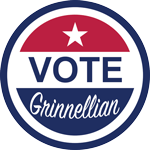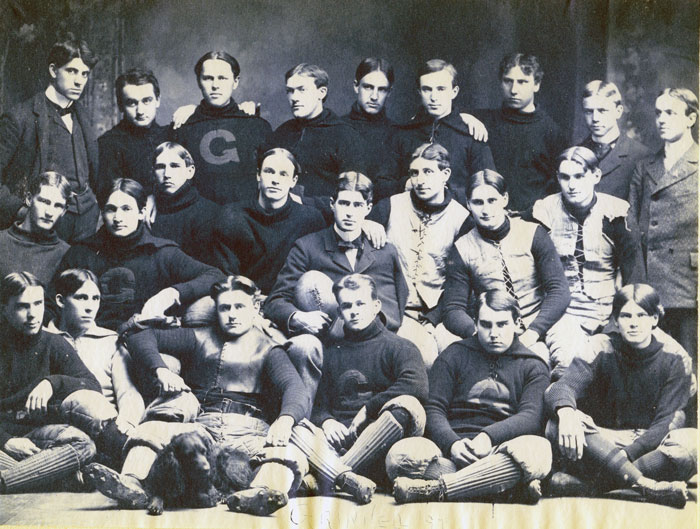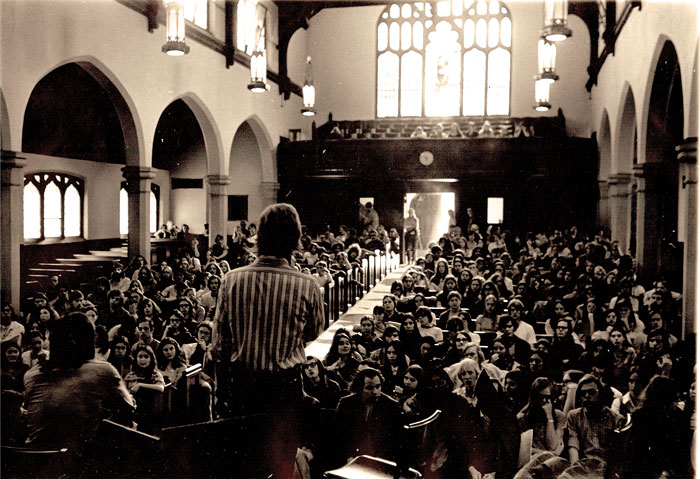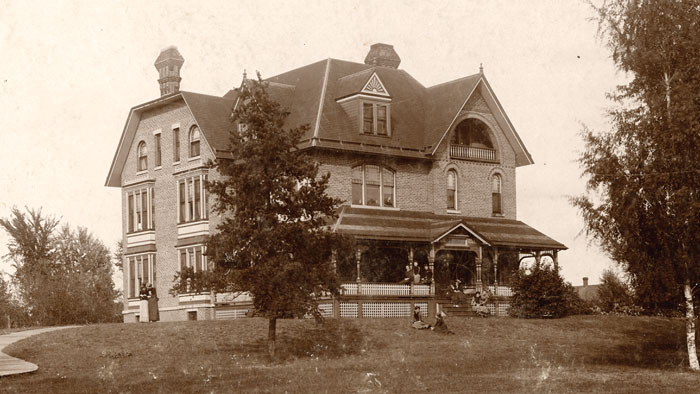 Mitch Erickson ’72 and I spent the summer of 1971 in Grinnell as summer research fellows with Luther Erickson. Only a few science students were on campus during the summer then; the College was beautiful, peaceful, and quiet.
Mitch Erickson ’72 and I spent the summer of 1971 in Grinnell as summer research fellows with Luther Erickson. Only a few science students were on campus during the summer then; the College was beautiful, peaceful, and quiet.
Our project went well, and we were eventually able to publish our results. My future husband, Craig Gordon ’71, had not been so lucky the summer before. After the compound he had worked all summer to synthesize mysteriously disappeared overnight, he decided science was not for him and went to law school. The gift to me of that summer was my growing friendship with both Luther and his wife, Jenny. They have remained important players in my life.

 Thanks to funding from the
Thanks to funding from the  One summer I was in Grinnell, I volunteered to drive the camping equipment from site to site for someone biking RAGBRAI [Register’s Annual Great Bicycle Ride Across Iowa]. It was mostly so I could spend some time with a girl I had a crush on. Through some miscommunication, I was accused of stealing a van, arrested, and spent two days in jail. When I told the magistrate that I was a Grinnell College student, he set my bail at $10,000. Lissa Mack ’98, my roommate at the time, had to call my parents to break the bad news. It turned out fine, although I did have to buy the person who had me arrested a new tent.
One summer I was in Grinnell, I volunteered to drive the camping equipment from site to site for someone biking RAGBRAI [Register’s Annual Great Bicycle Ride Across Iowa]. It was mostly so I could spend some time with a girl I had a crush on. Through some miscommunication, I was accused of stealing a van, arrested, and spent two days in jail. When I told the magistrate that I was a Grinnell College student, he set my bail at $10,000. Lissa Mack ’98, my roommate at the time, had to call my parents to break the bad news. It turned out fine, although I did have to buy the person who had me arrested a new tent. If I could time-travel to Grinnell, I would choose to go to 1898, when my maternal grandfather met my maternal grandmother. According to their Grinnell yearbooks, William Lindsay was a four-year letterman in football and baseball. Did they meet after a game? Mary Kinnick was active in a number of women’s debating clubs. Did they meet at a debate? That era was pre-in loco parentis (which ended circa 1970), where the College rule was that no young woman could allow any young man to “escort” her anywhere on campus. Did they break the rule? (I doubt it.)
If I could time-travel to Grinnell, I would choose to go to 1898, when my maternal grandfather met my maternal grandmother. According to their Grinnell yearbooks, William Lindsay was a four-year letterman in football and baseball. Did they meet after a game? Mary Kinnick was active in a number of women’s debating clubs. Did they meet at a debate? That era was pre-in loco parentis (which ended circa 1970), where the College rule was that no young woman could allow any young man to “escort” her anywhere on campus. Did they break the rule? (I doubt it.)
